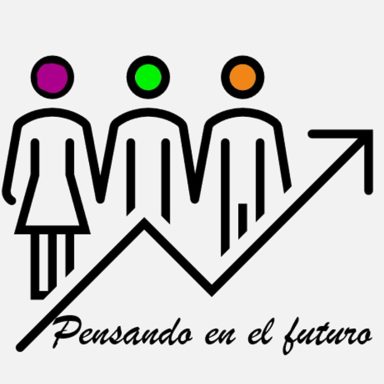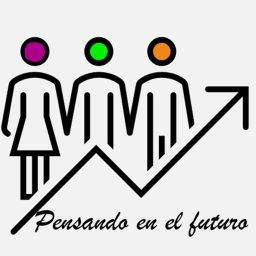School Mentoring Projects in Polígono Sur
Collaboration with the Development Cooperation Office of the University of Seville
The "School Mentoring Program in Polígono Sur" (Programa de Mentoría Escolar en Polígono Sur), funded by the Development Cooperation Office of the University of Seville, aims to improve living conditions in Polígono Sur (Seville) by developing socio-emotional skills in students from sixth grade and the first three years of secondary school in five educational centers. The project employs a critical communicative methodology that promotes joint reflection between mentors and students. Mentors act as role models, providing social and emotional support. The intervention includes group sessions, individual sessions, cultural visits, and events with professionals, as well as involving families and teachers in the educational process. The project has been funded through competitive calls for three editions under the "Service-Learning Projects, Research-Service Projects, and Development Studies" category of the Call for Activities and Development Cooperation Projects by the University of Seville.
Collaboration with Seville City Hall
The initiative "Thinking About the Future Without Leaving the Educational System: School Mentoring Program in Polígono Sur, Sevilla (Pensar en el futuro sin salir del sistema educativo: programa de mentoría escolar en Polígono Sur, Sevilla)," funded from September 2023 to April 2024 by the "Sevilla Solidaria" call of the Seville City Hall, is a social action project aimed at improving the quality of life and future prospects of adolescents at psychosocial risks. Its main objective is to promote socio-emotional development and prevent school dropout in students from various educational centers in the area through a mentoring program that equips young people from disadvantaged areas with resources and skills.
The project mixes group and individual sessions, with Students of the Degree in Psychology acting as mentors to support and work individually with the adolescents. Seventy-five boys and girls aged 10 to 15 from different educational centers in Polígono Sur (CEIP Andalucía, CEIP Manuel Altolaguirre, CEIP Fray Bartolomé de las Casas, and IES Romero Murube) participated, supported by 30 mentors and a Support Technician. The results have been positive, showing improvements in seeking help for personal problems, emotional regulation, conflict resolution, and the development of attitudes and values such as gender equity, commitment, responsibility, respect, solidarity, sensitivity, and critical thinking.
ENGAGED project from EU
The ENGAGED project (Political and Community Engagement, Trust, and Identity Among European Adolescents and Emerging Adults) is set against the backdrop of a global democratic recession and aims to promote civic and political participation among adolescents and young adults in Europe. Recognizing the increasing diversity and fragmentation of identities in European societies, the project focuses on strengthening democratic participation and ensuring that vulnerable groups, especially children and adolescents, are not excluded from these processes.
The project addresses concepts such as active citizenship and civic engagement, encompassing both traditional political activities and civic actions that benefit the community. This broad approach is crucial for including young people who may be less interested in conventional forms of political participation. Additionally, the project highlights socioeconomic, gender, and migratory background inequalities that affect the civic and political participation of young people, emphasizing the need for measures that assess and promote inclusive participation.
The objectives of the ENGAGED project include increasing understanding of the processes that shape civic engagement, developing evaluation tools, piloting new Living Labs models to foster democratic participation, and co-creating policy recommendations with young people and policymakers to ensure that the voices of marginalized youth are heard and considered in decision-making.
The project is funded by the European Union under the HORIZON Research and Innovation Actions call (code 101178889) with a budget of €3,252,120. The network comprises the following entities: University of Bergen (Norway), Babeș-Bolyai University (Romania), University of Seville (Spain), Pensando en el Futuro Association (Spain), Glasgow Caledonian University (United Kingdom), Osmani Trust (United Kingdom), Portuguese Catholic University (Portugal), and Aventura Social Association (Portugal).
Icehearts project from the UE
The Icehearts Europe project, led by the International Sport and Culture Association (ISCA) and supported by an EU4Health grant, aims to expand a successful Finnish program that supports vulnerable children. It employs sports activities and mentors who provide consistent support for 12 years to address mental and physical health issues among youth in the post-COVID-19 era. Mentors work with selected children to prevent social exclusion and enhance their well-being, adapting the program to various cultural contexts in different European communities. Through the entity Fútbol Más España (part of the EU-funded project consortium), the Pensando en el Futuro Association and the University of Seville specifically collaborate with the mentoring program in Seville and the mentor training program. Among the initiatives of Fútbol Más included in the Icehearts Europe project is the application of the Green Card, an educational tool, symbol, and philosophy of Fútbol Más, which rewards positive behavior and educates through the growth and development of individuals' potential.
Necesitamos su consentimiento para cargar las traducciones
Utilizamos un servicio de terceros para traducir el contenido del sitio web que puede recopilar datos sobre su actividad. Por favor revise los detalles en la política de privacidad y acepte el servicio para ver las traducciones.

